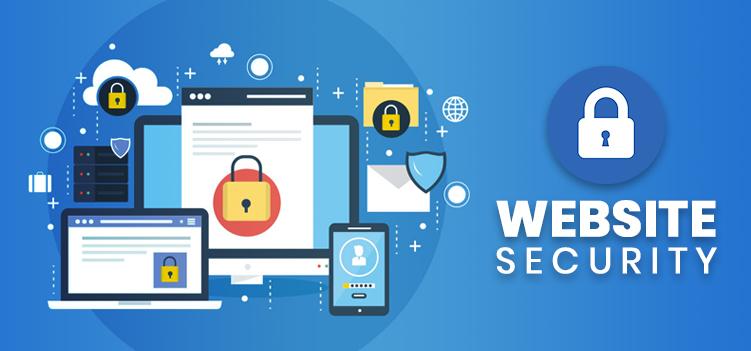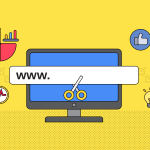
Website security has arisen as a critical concern in our increasingly linked digital society. Websites are critical communication, transaction, and information exchange channels for corporations, organizations, and individuals. This virtual domain, however, is not without dangers. Cyber dangers, data breaches, and malicious assaults are ever-present, emphasizing the importance of website owners and administrators prioritizing and strengthening security measures.
This article delves deeply into the subject of website security, digging into the associated threats, the potential implications of a breach, and, most importantly, presenting practical steps to improve your website’s security. By implementing these tactics, you can strengthen your online presence, safeguard sensitive data, and create a safer digital environment for both you and your visitors.
WordPress websites, like any other websites, are vulnerable to cyber-attacks. Hackers frequently use a well-known technique known as brute force assaults, in which they attempt to crack login credentials in order to gain unauthorized access. Fortunately, WordPress users can safeguard their websites and combat such incursions by utilizing plugins such as WP Login Lockdown. WordPress users can strengthen their website security and efficiently repel such harmful attempts by adding this precaution.
Creating a dedicated landing page for your website after it has been compromised is crucial as it helps to communicate with visitors, address the security breach, and provide updates while maintenance is underway to restore its functionality and trustworthiness.
Vital Measures for Safeguarding Your Website’s Security
Protecting your website becomes a top issue in the face of ongoing cyber assaults. Hackers frequently use website login pages as a point of entry for unauthorized access. As a result, protecting this vital entrance point necessitates strong security measures to harden your website against potential attacks.
Hackers love the login page, especially when weak or regularly used passwords are used, exposing your website to vulnerabilities. To mitigate this danger, the WP Login Lockdown plugin acts as an effective protection mechanism by preventing brute-force login page attacks. This plugin limits the number of login attempts allowed in a given time period and blocks IP addresses associated with past failed login attempts. By using this plugin, you considerably increase the barrier for attackers seeking unauthorized access to your website.
Furthermore, the WP Login Lockdown plugin keeps a detailed log of each login attempt, capturing important facts such as the IP address, username, and the outcome of the attempt, indicating whether it was successful or unsuccessful. This essential data can be used to spot patterns and deter any questionable behavior. You can easily and quickly boost the security of your WordPress website by installing this plugin, giving an additional defense against brute-force attacks.
Keep Your Website’s Confidential Information Secure
It is critical to have robust security measures for your website, and having an SSL certificate is critical in accomplishing this goal. It operates as a virtual shield, encrypting sensitive data transmitted between a user’s browser and your website, thereby protecting it from unauthorized access and any dangers. By implementing an SSL certificate, you establish trust, protect user privacy, and dramatically improve your website’s overall security. As a result, an SSL certificate has become an essential component of any modern website.
Every HTTP request is automatically redirected to HTTPS, ensuring that all transmitted data is encrypted. This is particularly crucial for websites that gather sensitive details, such as credit card numbers or personal information. By installing this plugin, you can easily enhance your website’s security and safeguard your users’ data from unauthorized access.
Keep your website and plugins updated
It is critical to ensure the security and currency of your online presence through website upkeep. However, when unexpected difficulties develop during routine maintenance, creating delays in website functioning and security, it may become exceedingly frustrating and troublesome. These unanticipated issues might cause downtime, data loss, or even compromises in website security. This highlights the importance of having adequate backup systems, contingency plans, and the support of competent specialists to quickly attack and fix any issues that may arise, emphasizing the importance of preparedness.
Consistent updates are crucial in safeguarding your website and plugins from any risks. By being vigilant and ensuring that your website software is updated on a regular basis, you ensure the rapid implementation of security updates and bug fixes, thereby boosting the overall durability of your digital infrastructure. Failure to maintain your website exposes it to well-known security risks, making it vulnerable to cyber assaults.
While minor WordPress updates can be deployed automatically, it is critical to manually upgrade plugins and major versions to maintain compatibility and avoid potential conflicts. Furthermore, prior to installation, it is critical to do a thorough review of plugins, selecting those that are reliable and consistently updated. This cautious step is crucial in reducing the risk of installing plugins that may have known vulnerabilities that nefarious parties could exploit.
To ensure the best possible SEO ranking for your website, it is crucial to pay attention to essential elements such as keywords, meta tags, header tags, and most importantly, ensuring there are no broken or outdated links.
Preventing Unauthorized Access: Using Strong Passwords to Secure Your Website
Strong passwords are essential for protecting your website from illegal access and any security breaches. The amount of complexity for attackers attempting to guess or crack strong passwords is significantly increased by using a combination of uppercase and lowercase letters, digits, and special characters. This strengthens your website’s security and protects sensitive data from malicious attackers.
The difficulty for hackers attempting to break or decrypt passwords via brute-force assaults is considerably improved by employing strong passwords that include a combination of uppercase and lowercase letters, digits, and special characters. Using strong passwords acts as a significant barrier against illegal access, protecting your website and sensitive data. This preventative strategy efficiently thwarts harmful activity and lowers the likelihood of prospective security breaches.
It is critical to choose strong passwords that are difficult to guess. To increase the strength of passwords, use a combination of uppercase and lowercase characters, numbers, and symbols. Furthermore, updating passwords on a regular basis and not reusing them across numerous websites are critical security steps that should never be overlooked.
Conclusion
In today’s interrelated digital environment, ensuring website security is critical in order to protect against cyber threats and data breaches. You may increase your website’s security measures by using several tactics such as using plugins such as WP Login Lockdown, enforcing SSL encryption, and regularly updating software and plugins.
Maintaining website security is crucial for safeguarding your online presence. One often-overlooked aspect of security is regularly removing broken links, as these can potentially expose vulnerabilities and create a poor user experience. Regularly auditing and eliminating broken links from your website helps ensure not only a smoother user journey but also reduces the risk of potential security breaches.
Strong passwords are essential for avoiding unauthorized access and preserving sensitive data. By putting website security first, you not only safeguard your online presence but also ensure a safer digital experience for both you and your visitors. To create a durable digital fortress that effectively fights against potential vulnerabilities, it is critical to stay aware, proactive, and vigilant.







